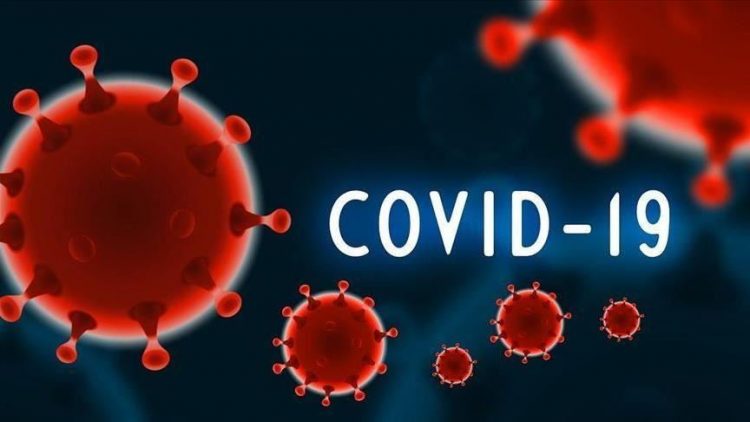By Tayo Ogunbiyi
Since March 2019, when the World Health Organisation, WHO declared it a pandemic, Coronavirus, a.k.a. COVID-19, has continued to wreak havoc across the world; weakling the health care system, disrupting businesses and bringing about a completely new norm in social interactions. At the peak of its reign, the pandemic brought the entire world to its knees, forcing countries to impose a total lockdown with its attendant challenges. It was such a trying moment for a bewildered world.
Toward the last quarter of 2020, there appeared to be a bit of respite, making many nations to progressively relax hitherto stringent COVID-19 protocol. Gradually, things began to return to normalcy, as people began to piece together the ruins of their businesses. At last, the worst is over! So we all thought. How wrong!
From the blue came a more menacing variety of the pandemic. Now popularly referred to as the second wave, the new brand of the deadly virus, experts say, is more dreadful and ferocious, giving its victims very little chances of survival. Now, across the world, the fear of the second wave of COVID-19 is the beginning of wisdom.
It is, however, puzzling that in the midst of the pandemic’s vicious resurgence, many still see it as a ruse, while others simply term it a ‘rich man’s disease’. Ironically, this view is not only being spread among the uneducated, a few elites also nurse it. For instance, in March 2020, Governor of Mexico’s Puebla State, Luis Miguel Barbosa, said: “If you are rich, you are at risk, but if you are poor, you are not.”
In Nigeria and, indeed, many African countries, many people who reside in high-density areas are yet to come to term with the monstrous nature of the pandemic. They still live carelessly, claiming, without scientific proofs, that the virus only seeks the rich to devour. But then, is this really the case? Is COVID-19 actually a rich man’s nemesis? Are the poor totally immune from the infection as being claimed?
To start with, historically, pandemics rage more among the poor, but in the case of coronavirus, being a high-class import infection— carried in by businessmen and tourists returning from trips abroad, the rich, obviously, appear more vulnerable. Therefore, looking at it from this perspective, the rich certainly stand the risk of contracting the disease. This, perhaps, explains, especially in the case of Nigeria, why the elites seem to be the earliest casualties of the ailment.
Thus, it is safe to establish that at the outset, COVID-19 could be considered a rich man’s disease, considering it was imported by the supposed rich who contracted it abroad. But then, it didn’t take long before the equation quickly changed and the disease became an all-comers’ affairs. It was not long before a pattern of spreading the disease from the rich to the poor and vice-versa emerged. That marked the beginning of a new phase in the spread of the disease, which experts refer to as community transmission.
In countries where it recorded greater casualties, COVID-19 neither spared the rich nor the poor. It killed without taking such social stratification into consideration. The truth, thus, is that the pandemic seeks both the rich and poor to destroy. Hence, the earlier proponents of the baseless assertion that the unseen monster is only after the rich jettisons such wild claim, the better for them and the entire society. Please, get it right, COVID-19 knows no social boundaries!
For that reason, we need to come to term with the reality of what we are contending with. This is not the time to make unfounded statements. Such will only compound the situation. The appeal, here, is for compatriots to take personal responsibility for their health. The ultimate responsibility for our safety lies in our hands. It is quite absurd to read about certain people holding some high society party amid a vicious pandemic. If we continue with such ‘I don’t care’ (unconcerned) attitude, we will not only hurt our families, but we will hurt others too.
According to history, the Spanish flu of 1918 claimed many lives in the first wave, but as soon as the lockdown was relaxed people began to party again and quickly overlooked hitherto treasured protocols. Sadly, before they could come to term with it, the second wave had claimed ten times more people.
To prevent a spike in COVID-19 cases and forestall our healthcare system being overwhelmed, we all need to take responsibility and follow strict hygiene practices. Wear your facemask appropriately. It is not a chin mask! Adhere to social distancing rules, wash hands regularly and keep to all safety guidelines.
We should not frustrate the government’s effort in containing the virus via unfounded conjectures and careless attitude. Let us all take responsibility for keeping everyone safe.
Ogunbiyi is Deputy Director, Public Affairs, Ministry of Information and Strategy, Alausa, Ikeja
Source: BUSINESS DAY












